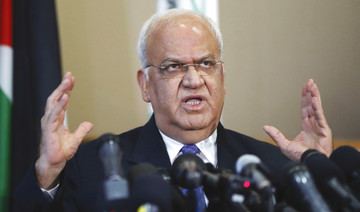KHAN AL-AHMAR, West Bank: For the anxious Palestinian residents of Khan Al-Ahmar, there’s little left to do but wait.
After the West Bank hamlet lost its last legal protection against demolition late last week, Israeli forces could swoop in any day now to tear down the desert community’s few dozen shacks and an Italian-funded schoolhouse made from recycled tires.
Some hold out hope that Israel might be deterred by an inevitable international outcry over razing the community. Major European countries have warned that flattening Khan Al-Ahmar poses a grave threat to the already fading prospects of a two-state solution to the Israeli-Palestinian conflict.
The seemingly outsized international attention being paid to the tiny community is linked to its strategic location in the center of the West Bank. It’s an area deemed essential for setting up a viable Palestinian state in the West Bank, Gaza Strip and east Jerusalem, areas Israel captured in 1967.
Israel has portrayed the battle over Khan Al-Ahmar as a mere zoning dispute. Critics of Prime Minister Benjamin Netanyahu’s policies say the village has become a symbol for what they describe as an ongoing displacement of Palestinians to make room for Israeli settlements.
With demolition now looming, dozens of activists, including foreigners, have been spending nights in Khan Al-Ahmar to show support. They sleep on mattresses spread out under green tarp covering the front yard of the Italian-funded school.
“We cannot prevent demolition,” said activist Mohammed Abu Hilweh, 30, from Jerusalem, as he stretched out on a mattress on a recent evening, settling in for the night.
“But we can resist, delay and when it happens, we can rebuild,” he said.
Khan Al-Ahmar is located a few dozen meters from a four-lane highway that runs east-west, effectively slicing the West Bank in half at a narrow waist and linking Jerusalem with the Jordan Valley.
The highway is also flanked by several Israeli settlements, including Maaleh Adumim, the West Bank’s third largest. A new settlement across the highway from Maaleh Adumim, called E1 by Israeli planners, would effectively block the remaining land link between West Bank Palestinians and east Jerusalem, their hoped-for capital. Khan Al-Ahmar sits just outside the area mapped for E1, which until now had largely been frozen under US pressure.
Hanan Ashrawi, a senior Palestinian official, called the planned demolition a “blatant attempt” by Israel to separate the Palestinians from Jerusalem. “It is absolutely imperative that the international community intervene,” she said.
For the past 25 years, the international community has favored the establishment of a Palestinian state alongside Israel as the best hope for peace. But those hopes are quickly fading.
In a departure from predecessors, President Donald Trump, who has promised a new peace plan, has refused to endorse the two-state solution while recognizing Jerusalem as Israel’s capital, over Palestinian opposition.
The US State Department has said little about the looming demolition, referring reporters to the Israeli government for details.
By contrast, European governments have been outspoken.
“The demolition of this small Palestinian village would not only affect a local community,” EU foreign policy chief Federica Mogherini recently told the European Parliament. “It would also be a blow against the viability of the state of Palestine and against the very possibility of a two-state solution.”
Separately, France, Germany, Italy, Spain and the United Kingdom warned in a rare joint statement that demolition would have “very serious” consequences.
For now, Israel appears to be moving ahead. After a decade-long legal battle, Israel’s Supreme Court rejected a final appeal earlier this month. Late last week, a moratorium on demolition expired.
Israel has not announced a date for the demolition, but earlier this week dismantled five corrugated metal shacks near Khan Al-Ahmar that had been set up by villagers a few days earlier in a show of defiance. On Friday, troops returned with heavy equipment, removing earthen mounds set up to slow demolition. Two Palestinians and an American-French law professor were detained.
The 180 residents of Khan Al-Ahmar are members of the Jahalin Bedouin tribe that has lived in the area since being expelled from the southern Negev Desert after Israel’s establishment in 1948. The United Nations granted them refugee status.
Shani Sasson, a spokeswoman for COGAT, the Israeli defense body responsible for Palestinian civilian affairs, said Israel has offered to relocate the villagers.
She said the tribe squats on land that is not safe for living, and that the Israeli government has prepared an alternative site just a few kilometers (miles) away with sewage treatment and access to water and electricity. She said Israel has invested over $2 million in the relocation project.
“We are doing them a service,” she said. “This is not against them, this is for them.”
Residents acknowledge that life in their village is tough. But they say there is no place they would rather live. They say Israel is trying to move them to a site that will be too crowded for their livestock and that sits near a sewage facility and a garbage dump.
“We Bedouin people like the desert life,” said Yousef Abu Dahouq, a Khan Al-Ahmar resident, sitting on a wooden bench near the school, sipping tea and smoking a waterpipe. “We live next to each other, support each other.”
The Palestinians and Europeans see a deeper Israeli agenda.
Khan Al-Ahmar is in the 60 percent of the West Bank that is known as Area C and remains under full Israeli control, according to interim peace deals from the 1990s that are seemingly locked in place because of diplomatic paralysis. The remainder of the territory is administered by a Palestinian autonomy government.
Area C is home to about 400,000 Israeli settlers and an estimated 150,000 to 200,000 Palestinians. Israel places severe restrictions on Palestinian development while supporting and promoting dozens of settlements in the area.
The EU has attempted to build numerous structures for Palestinians in Area C, only to see them demolished or rejected because of a lack of hard-to-get permits. Khan Al-Ahmar’s Italian-funded school was built from car tires because a construction permit could not be obtained.
“This is the situation on the ground: New settlements for Israelis are built, while Palestinian homes in the same area are demolished,” said Mogherini. “This will only further entrench a one-state reality, with unequal rights for the two peoples, perpetual occupation and conflict.”
The village chief, Eid Khamis, promised to put up a fight.
“They want to kick us out and build settlements and we will not let that happen,” he said. “It’s our land.”
Doomed Palestinian village turns to Europe as last hope
Doomed Palestinian village turns to Europe as last hope

- Major European countries have warned that flattening Khan Al-Ahmar poses a grave threat to the already fading prospects of a two-state solution to the Israeli-Palestinian conflict
- Critics of PM Netanyahu’s policies say the village has become a symbol for the ongoing displacement of Palestinians to make room for Israeli settlements
Sudan facing ‘inferno’ of violence, crushing aid holdups: UN

- The grim situation is only expected to worsen
United Nations, US: Residents of conflict-hit Sudan are “trapped in an inferno of brutal violence” and increasingly at risk of famine due to the rainy season and blocked aid, the UN’s humanitarian coordinator for the country warned Wednesday.
Tens of thousands of people have died and millions have been displaced since war broke out in April 2023 between the army and the paramilitary Rapid Support Forces (RSF).
“Famine is closing in. Diseases are closing in. The fighting is closing in and there’s no end in sight,” Clementine Nkweta-Salami told a press conference.
The grim situation is only expected to worsen, with “just six weeks before the lean season sets in, when food becomes less available, and more expensive.”
Noting that more than four million people are facing potential famine, Nkweta-Salami added that the onset of the country’s rainy season means that “reaching people in need becomes even more difficult.”
The area’s planting season also “could fail if we aren’t able to procure and deliver seeds for farmers,” she said.
And “after more than a year of conflict, the people of Sudan are trapped in an inferno of brutal violence.”
“In short, the people of Sudan are in the path of a perfect storm that is growing more lethal by the day,” Nkweta-Salami warned, adding that the humanitarian community needs “unfettered access to reach people in need, wherever they are.”
The United Nations has expressed growing concern in recent days over reports of heavy fighting in densely populated areas as the RSF seeks control of El-Fasher, the last major city in the western Darfur region not under its control.
“Right now the humanitarian assistance they rely on can’t get through,” Nkweta-Salami said.
More than a dozen UN trucks loaded with medical equipment and food, which left Port Sudan on April 3, have still not reached El Fasher, she said, “due to insecurity and delays in getting clearances at checkpoints.”
Israel PM says no humanitarian crisis as hundreds of thousands flee Rafah

RAFAH, Palestinian Territories: Israeli Prime Minister Benjamin Netanyahu on Wednesday insisted there was no “humanitarian catastrophe” in Rafah, even as hundreds of thousands fled the south Gaza city amid intense fighting.
Hamas meanwhile insisted it would take part in any decision on the post-war government of Gaza as Palestinians marked the 76th anniversary of the “Nakba,” when around 760,000 Palestinians fled or were driven from their homes during the 1948 creation of Israel.
Israeli forces have bombed Hamas militants around Gaza’s far-southern city of Rafah, but clashes have also flared again in northern and central areas which Israeli troops first entered months ago.
The upsurge in urban combat has fueled US warnings that Israel, which launched its war after the October 7 Hamas attacks, risks being bogged down in years of counterinsurgency.
But despite previous threats by US President Joe Biden to withhold some arms deliveries over Netanyahu’s insistence on attacking Rafah, his administration informed Congress on Tuesday of a new $1 billion weapons package for Israel, official sources told AFP.
The European Union urged Israel to end its military operation in Rafah “immediately,” warning failure to do so would “inevitably put a heavy strain” on ties with the bloc.
But even as he announced that hundreds of thousands had been “evacuated,” Netanyahu insisted there was no humanitarian crisis in Rafah.
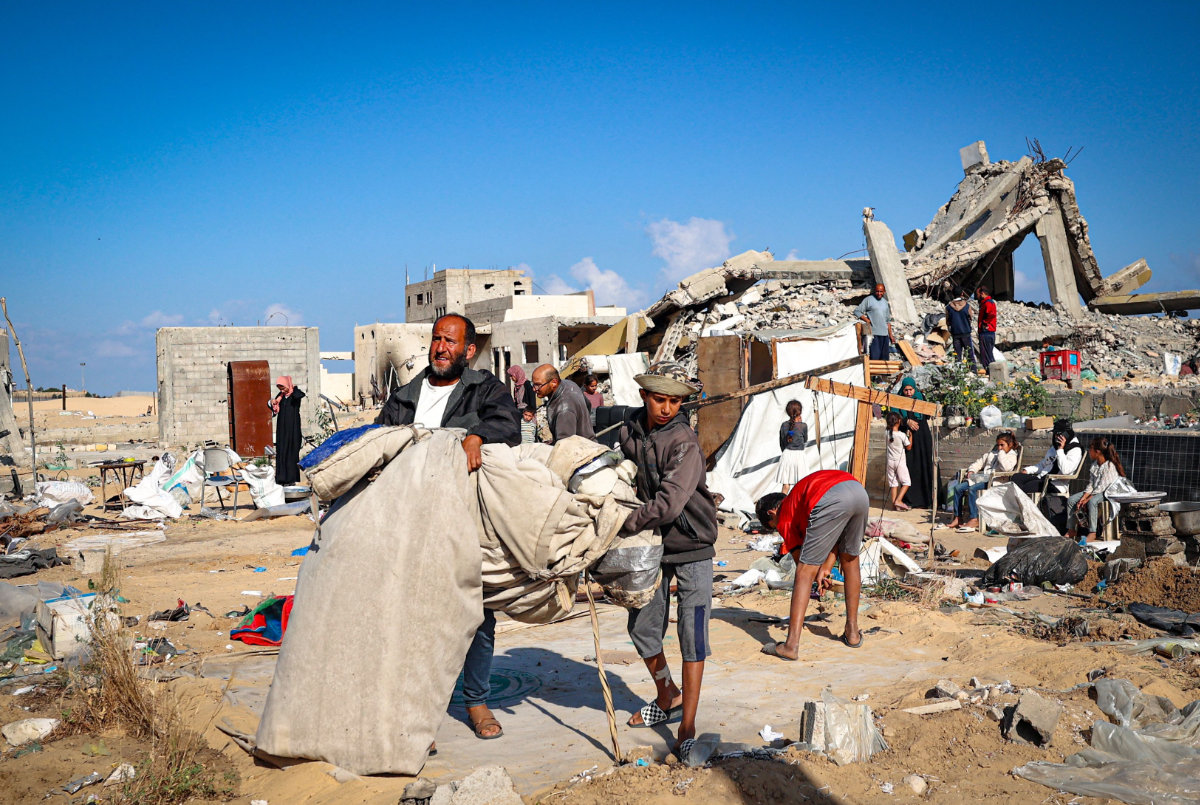
“Our responsible efforts are bearing fruit. So far, in Rafah, close to half a million people have been evacuated from the combat zones. The humanitarian catastrophe that was spoken about did not materialize, nor will it,” he said.
The United Nations agency for Palestinian refugees, UNWRA, meanwhile said “600K people have fled Rafah since military operations intensified.”
Nakba Day
The sight of desperate families carrying scant belongings through the ruins of war-scarred Gaza cities has evoked for many the events of the 1948 Nakba which translates from Arabic as “catastrophe.”
Hamas declared in a Nakba Day statement that “the ongoing suffering of millions of refugees inside Palestine and in the diaspora is directly attributed to the Zionist occupation.”
Hamas chief Ismail Haniyeh insisted meanwhile that the militant movement will be involved in deciding post-war rule in Gaza along with other Palestinian factions.
“We say that the Hamas movement is here to stay ... and it will be the movement and all national (Palestinian) factions who will decide the post-war rule in Gaza,” Haniyeh said in a televised address for Nakba.
He also said the fate of truce talks was uncertain because of Israel’s “insistence on occupying the Rafah crossing and on its expansion of the aggression” in the Palestinian territory.
“Any agreement must ensure a permanent ceasefire, comprehensive withdrawal (of Israeli forces) from all sectors of the Gaza Strip, a real deal for exchange of prisoners, the return of displaced persons, reconstruction and lifting the siege” of Gaza, Haniyeh said.
Thousands marched to mark the day in cities across the Israeli-occupied West Bank, waving Palestinian flags, wearing keffiyeh scarves and holding up symbolic keys as reminders of long-lost family homes.
Netanyahu has vowed to destroy Hamas and bring home hostages still held in Gaza.
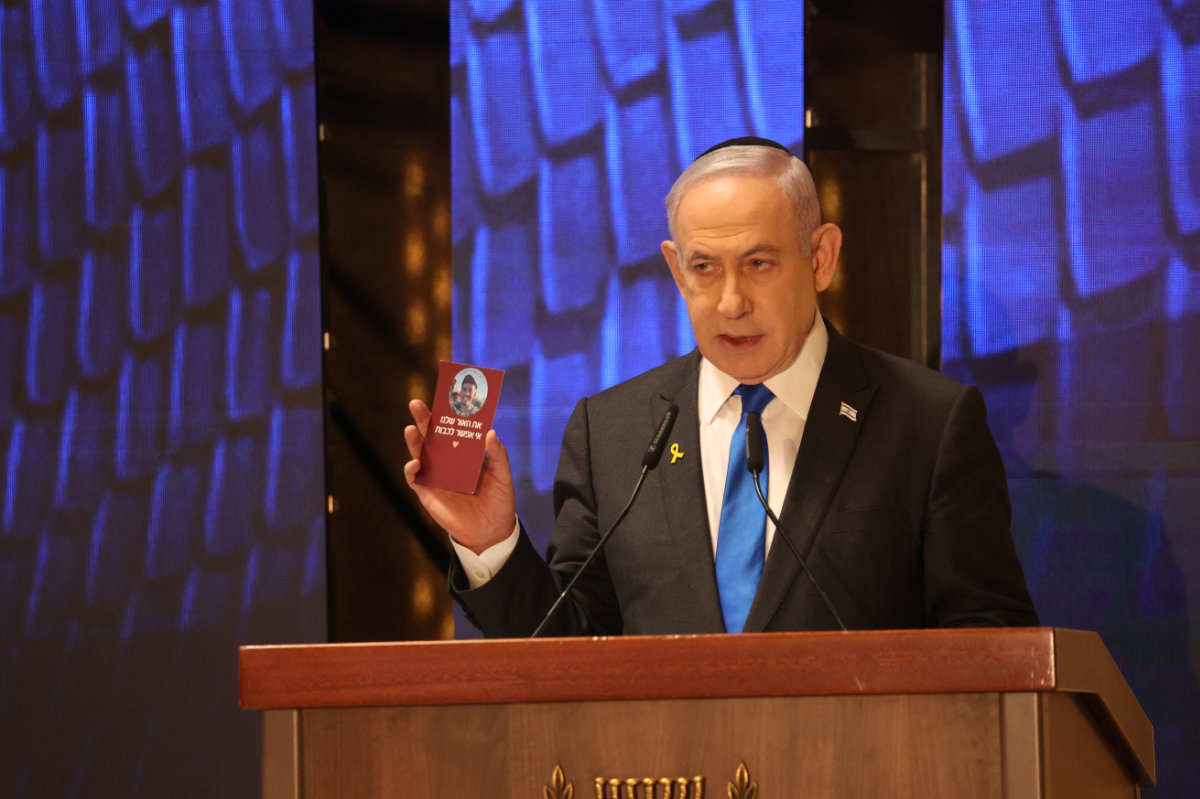
The United Nations agency for Palestinian refugees, UNWRA, meanwhile said “600K people have fled Rafah since military operations intensified.”
In a Wednesday interview with CNBC, Netanyahu addressed the tensions with Biden over the offensive, saying: “Yes, we do have a disagreement on Gaza. Rather, on Rafah. But we have to do what we have to do.”
Washington has also repeatedly urged Israel to work on a post-war plan for Gaza and supports the goal of a two-state solution, which Netanyahu and his far-right allies strongly oppose.
US State Department spokesman Vedant Patel said without a political plan, Palestinian militants “will keep coming back” trapping all sides in “this continued cycle of violence.”
Israeli Defense Minister Yoav Gallant on Wednesday said he would “not agree to the establishment of an Israeli military administration in Gaza, Israel must not have civilian control over the Gaza Strip.”
The war broke out after Hamas’s October 7 attack on southern Israel which resulted in the deaths of more than 1,170 people, mostly civilians, according to an AFP tally of Israeli official figures.
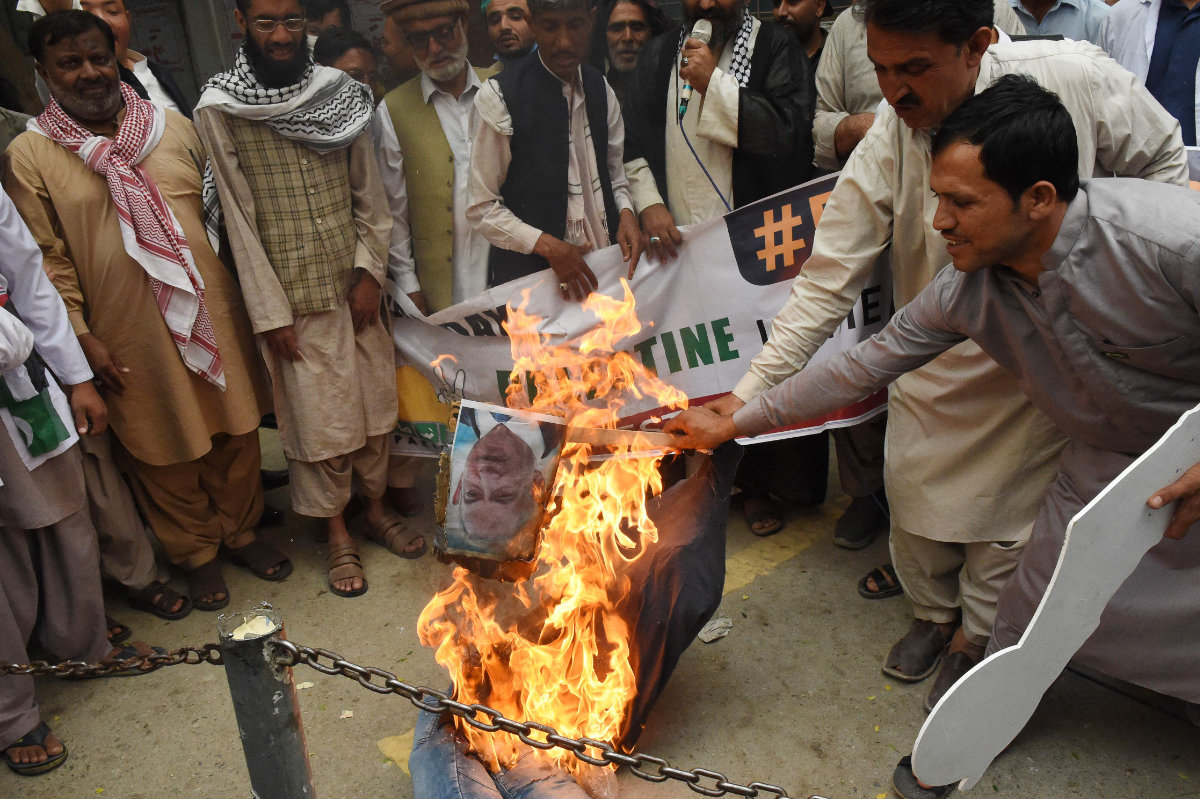
The militants also seized about 250 hostages, 128 of whom Israel estimates remain in Gaza, including 36 the military says are dead.
Israel’s military retaliation has killed at least 35,233 people, mostly civilians, according to the Gaza health ministry, and an Israeli siege has brought dire food shortages and the threat of famine.
Clashes continue
The Israeli military said Wednesday its aircraft had “struck and eliminated approximately 80 terror targets” including military compounds, missile launchers and weapons depots.
It also reported battles in eastern Rafah and in Jabalia in northern Gaza, where it said it had killed militants, adding troops were also fighting in the Zeitun area.
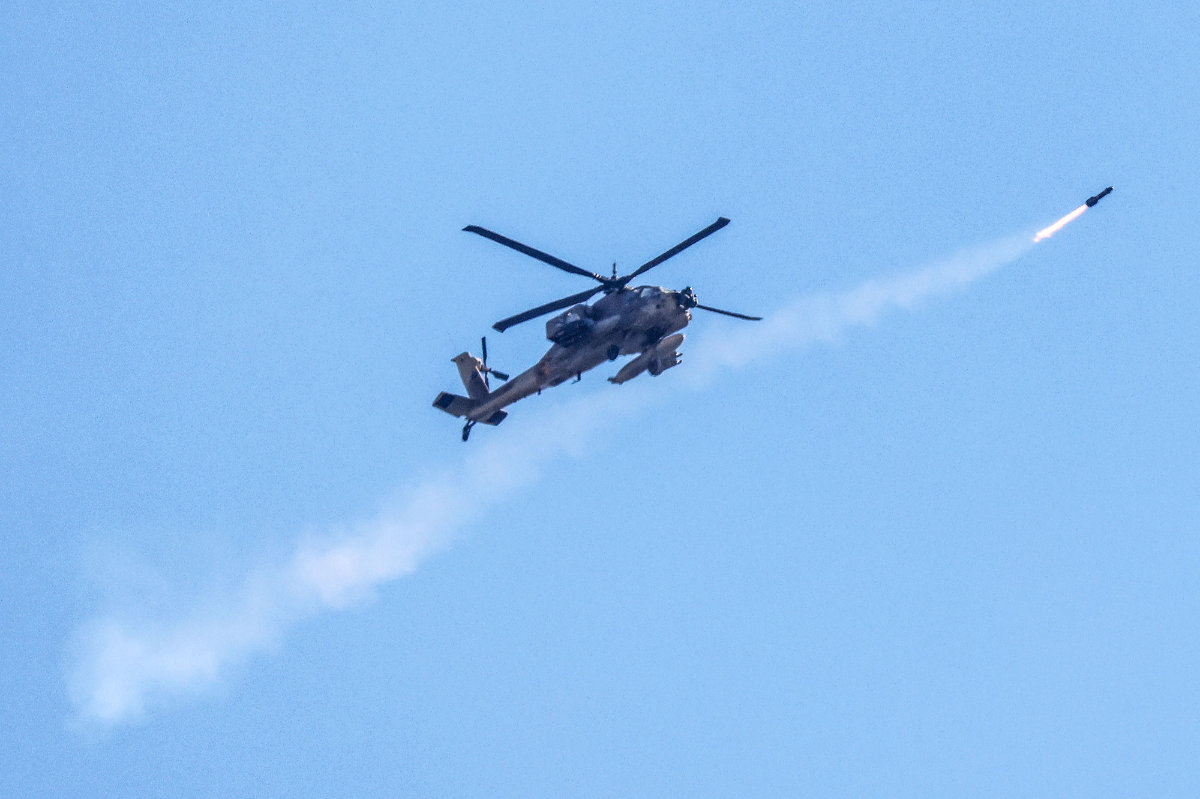
Hamas’s armed wing also reported its fighters were clashing with troops in the Jabalia area, much of which has been reduced to rubble.
At least five people were killed, including a woman and her child, in two Israeli air strikes on Gaza City overnight, Gaza’s civil defense agency said.
At the city’s Al-Ahli hospital, a wounded man, his bare chest smeared with blood, lay on a cot while outside several men placed a shrouded corpse in the shade of a tree.
Sporadic aid deliveries into Gaza by truck have slowed to a trickle since Israeli forces took control of the Gaza side of the Rafah crossing with Egypt last week.
A UK delivery of 100 tons of temporary shelter kits left Cyprus Wednesday on its way to a US-built pier in Gaza, Britain said.
Another convoy carrying humanitarian relief goods was ransacked by Israeli right-wing activists on Monday after it had crossed from Jordan through the West Bank.
Palestinians: Our ‘Nakba’ in 2023 is worst ever

- Thousands protest in West Bank, waving Palestinian flags, wearing keffiyeh scarves and holding up symbolic keys as reminders of long-lost family homes
GAZA: As the Gaza war raged on, Palestinians on Wednesday marked the anniversary of the Nakba, or “catastrophe,” of mass displacement during the creation of the state of Israel 76 years ago.
Thousands marched in cities across the Israeli-occupied West Bank, waving Palestinian flags, wearing keffiyeh scarves and holding up symbolic keys as reminders of long-lost family homes.
Inside the besieged Gaza Strip, where the Israel-Hamas war has ground on for more than seven months, scores more died in the fighting sparked by the Hamas attack of Oct. 7.
“Our ‘Nakba’ in 2023 is the worst ever,” said one displaced Gaza man, Mohammed Al-Farra, whose family fled their home in Khan Younis for the coastal area of Al-Mawasi.
“It is much harder than the Nakba of 1948.”
Palestinians everywhere have long mourned the events of that year when, during the war that led to the establishment of Israel, around 760,000 Palestinians fled or were driven from their homes.
But 42-year-old Farra, whose family was then displaced from Jaffa near Tel Aviv, said the current war is even harder.
“When your child is accustomed to all the comforts and luxuries, and suddenly, overnight, everything is taken away from him ... it is a big shock.”
Thousands marched in the West Bank city of Ramallah, as well as in Nablus, Hebron and elsewhere, carrying banners denouncing the occupation and protesting the war in Gaza.
“There’s pain for us, but of course more pain for Gazans,” said one protester, Manal Sarhan, 53, who has relatives in Israeli jails that have not been heard from since Oct. 7. “We’re living the Nakba a second time.”
Commemorations and marches — held a day after Israel’s Independence Day — come as the Gaza war has brought a massive death toll and the forced displaced of most of the territory’s 2.4 million people.
A devastating humanitarian crisis has plagued the territory, with the UN warning of looming famine in the north.
US working to get American doctors out of Gaza, White House says

- “We’re tracking this matter closely and working to get the impacted American citizens out of Gaza,” Jean-Pierre said
- The Biden administration has been warning Israel against a major military ground operation in Rafah
WASHINGTON: The Biden administration is working to get US doctors out of Gaza, White House Press Secretary Karine Jean-Pierre said on Wednesday, as fighting intensified in the seaside enclave.
A group of American doctors from the Palestinian American Medical Association told the Washington Post this week that they were stuck in Gaza after Israel closed the border crossing in the southern city of Rafah.
“We’re tracking this matter closely and working to get the impacted American citizens out of Gaza,” Jean-Pierre said.
Jean-Pierre said the United States was engaging directly with Israel on the matter.
The Biden administration has been warning Israel against a major military ground operation in Rafah, but Jean-Pierre said efforts to get the doctors out are continuing regardless of what happens there.
“We need to get them out. We want to get them out and it has nothing to do with anything else,” she said.
Israeli troops battled militants across Gaza on Wednesday, including in Rafah, which had been a refuge for civilians, in an upsurge of the more than 7-month-old war that has killed tens of thousands of Palestinians.
Gaza’s health care system has essentially collapsed since Israel began its military offensive there after the Oct. 7 cross-border attacks by Palestinian Hamas militants on Israelis.
Humanitarian workers sounded the alarm last week that the closure of the Rafah and Kerem Shalom crossings into Gaza could force aid operations to grind to a halt.
The Israeli assault on Gaza has destroyed hospitals across Gaza, including Al Shifa Hospital, the Gaza Strip’s largest before the war, and killed and injured health workers.
Egypt warns against consequences of Israeli escalation in Gaza

- During talks with Ayman Al-Safadi and Fuad Hussein, FM Shoukry said that there would be negative repercussions for regional stability if Israel continued to escalate its activities in Gaza
- Discussions in Manama took place on the sidelines of an Arabian foreign ministers’ meeting being held in preparation for the Arab Summit
CAIRO: Egypt’s Foreign Minister Sameh Shoukry has warned of dire consequences as a result of Israel escalating its activities in the Gaza Strip.
During talks with his Jordanian and Iraqi counterparts, Ayman Al-Safadi and Fuad Hussein, he also said there would be negative repercussions for the security and stability of the whole region.
The discussion in Manama on Wednesday took place on the sidelines of an Arabian foreign ministers’ meeting being held in preparation for the Arab Summit.
Shoukry talked about Egypt’s efforts to reach an immediate, comprehensive and lasting ceasefire in Gaza and its call for allowing immediate delivery of humanitarian aid.
He also stressed his country’s categorical rejection of any attempts to displace Gazans or kill the Palestinian cause.
He underlined the need to stop targeting civilians, halt Israeli settler violence, and allow aid access in adequate quantities “that meet the needs of our Palestinian brothers.”
During the meeting, Shoukry also reaffirmed Cairo’s support for the stability of Iraq and Jordan and emphasized the importance of implementing directives from the three countries’ leaders to boost cooperation within the framework of the tripartite mechanism.
He said Egypt viewed tripartite cooperation as a way to link the interests of the three countries and maximize common benefits. The discussion also underlined the importance of putting into effect agreed joint projects as soon as possible.
During a separate meeting with Iraqi minister Hussein, Shoukry reiterated the directives of President Abdel Fattah El-Sisi to develop relations between the two countries in various fields.
The Iraqi minister highlighted close historical ties with Egypt that required continued coordination on the various challenges plaguing the region. Hussein also hailed the key role played by Egypt to bring about an end to the crisis in Gaza.


